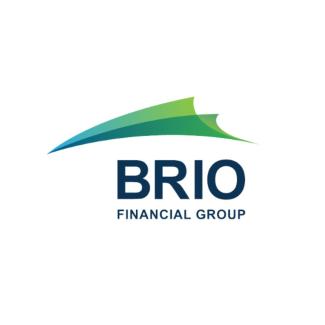
Top 15 Money Management Tips
by Brandon Miller on Apr 5, 2019
We all have our own unique relationship with money. We certainly have our own unique way of both spending and saving money.
However, if you’re ready to start putting some money aside, or looking for tips on money management, or even the best way to pay your bills, the following tips may provide a little bit of help:
- Keep track of your income and expenses. This means looking at bank and credit card statements, not just assuming they’re accurate.
- Opt out of paper billing and have your statements sent over via email. You’ll reduce clutter, bills will no longer be misplaced or tossed out in error, and you’ll always know where you can find a copy.
- Pay your bills online if possible. This reduces the need to sit down, write a check, put postage on the envelope, and mail it. You can pay the same bill in around a minute online with no added expense.
- Start saving for retirement. While it may seem a long way off, it comes much faster than you may think. Be prepared.
- Always pay more than the minimum on any credit card bill, even if it’s just a few dollars more.
- Ideally, only use your credit card when you know you can pay it off in full at the end of the month. Then you can ignore Tip #5.
- Always have an emergency fund on hand. While we never want to have to use it, you’ll be prepared should you have to use it.
- Avoid the “Keeping Up with the Jones” syndrome. It’s so easy to get into the habit of keeping up with our friends. That latest purchase may bring some fleeting happiness, but then we’re left alone with a house full of material possessions that mean nothing. Make yourself happy and stop worrying about your friends. If they like you because of your possessions, you don’t need another big-ticket item, you need new friends.
- NEVER, NEVER, NEVER take out a payday loan. NEVER!
- Regularly check your credit report for errors and report them promptly. Your credit score is one of the most important things in your life. Take it seriously and make sure your report is accurate.
- Create a budget and use it. A budget app can be particularly useful for those that have the temptation to splurge and their budget is on a spreadsheet on a computer at home. Having a budgeting app on your phone makes it much more difficult to cheat.
- Eat at home more often. Plan meals in advance or cook all your dinners on Sunday so you only have to rewarm them. Having a meal that can be easily prepared really cuts down on the desire to eat out.
- Negotiate. Don’t assume that any price is final. There’s always room to negotiate.
- Splurge. While it’s important to stay on your budget, it’s also important to splurge once in a while.
- When you do splurge, don’t just buy an expensive item, buy an experience. You’ll remember it a lot longer.
This content is developed from sources believed to be providing accurate information. The information provided is not written or intended as tax or legal advice and may not be relied on for purposes of avoiding any Federal tax penalties. Individuals are encouraged to seek advice from their own tax or legal counsel. Individuals involved in the estate planning process should work with an estate planning team, including their own personal legal or tax counsel. Neither the information presented nor any opinion expressed constitutes a representation by us of a specific investment or the purchase or sale of any securities. Asset allocation and diversification do not ensure a profit or protect against loss in declining markets. This material was developed and produced by Advisor Websites to provide information on a topic that may be of interest. Copyright 2025 Advisor Websites.
The opinions expressed in this article are for general informational purposes only and are not intended to provide specific advice or recommendations for any individual or on any specific security. It is only intended to provide education about the financial industry. To determine which investments may be appropriate for you, consult your financial advisor prior to investing. Any past performance discussed during this program is no guarantee of future results. Any indices referenced for comparison are unmanaged and cannot be invested into directly. As always please remember investing involves risk and possible loss of principal capital; please seek advice from a licensed professional.
Brio Financial Group is a registered investment adviser. Advisory services are only offered to clients or prospective clients where Brio Financial Group and its representatives are properly licensed or exempt from licensure. No advice may be rendered by Brio Financial Group unless a client service agreement is in place.
